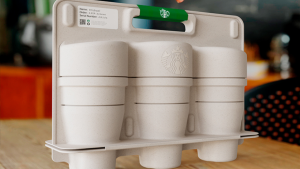From the Series
The Conflict Kitchen in the American city of Pittsburgh serves food only from countries with which the United States is involved in some sort of conflict.
“The culture of the food actually gives you some hints about the people and what their life is like”, Conflict Kitchen’s cultural director and chef Robert Sayre explains to Design Indaba at the 2013 Spier Secret Festival.
Having served Iranian, Afghan and Venezuelan takeout dishes – and currently focusing on Cuban food – the emphasis is not about educating the public on the conflict with those countries, their governments or politics. Rather, it's about highlighting the day-to-day lives of the people who live there, as well as their opinions and thought processes.
We see eating as almost a bait to draw people in. Food is the way people are comfortable approaching another culture, whereas they’re not comfortable sitting down and having a political discussion with people they’ve never met, Sayre says. Even that interaction has value.
The server in the hatch of the takeout restaurant instigates a conversation with the customer about the country whose cuisine is on sale. The servers are not necessarily experts on those countries but their job is to get some sort of dialogue going.
Other Conflict Kitchen projects are the Skype dinner, The Foreigner and the country speeches. The Skype dinner Sayre describes as an “international dinner party”. Food is prepared in Pittsburgh and in Tehran with Conflict Kitchen's collaborators there, and screens are set up in each place. With the screens, it’s as if the tables in each country are next to each other in one room and the people in both countries eat together and converse with one another in real time.
“The Foreigner” is a project where a person in Pittsburgh and a person in Tehran each wear headphones and microphones. They are the human embodiment or avatar of each other. So a patron at Conflict Kitchen can sit and eat lunch with the American who acts as a channel to communicate what his or her Iranian counterpart is saying, and vice versa.
For the Iranian and the Cuban speeches, collaborators in those countries write a speech that they would like President Barack Obama to deliver. Then an actor who looks like Obama delivers it in a public square in Pittsburgh.
“The U.S. is such a big power and such a bully around the world,” Sayre says. The speeches are a way for people in those conflict countries to have the experience of the American president saying what they’d like to hear him saying, he adds.
A giant billboard bearing messages sent in by members of the public is displayed in the downtown Pittsburgh area of Oakland near the eatery. Anybody can send a message and Sayre says many artists do – usually with a quote or sometimes simply with a phone number that begins an entirely new interactive experience when the number is dialled.
One message that’s been posted to the billboard reads: Like a tragic comedy, the U.S. Gov.’s actions have actually helped the Iranian Gov. and hurt the people of Iran – Iranian American.








